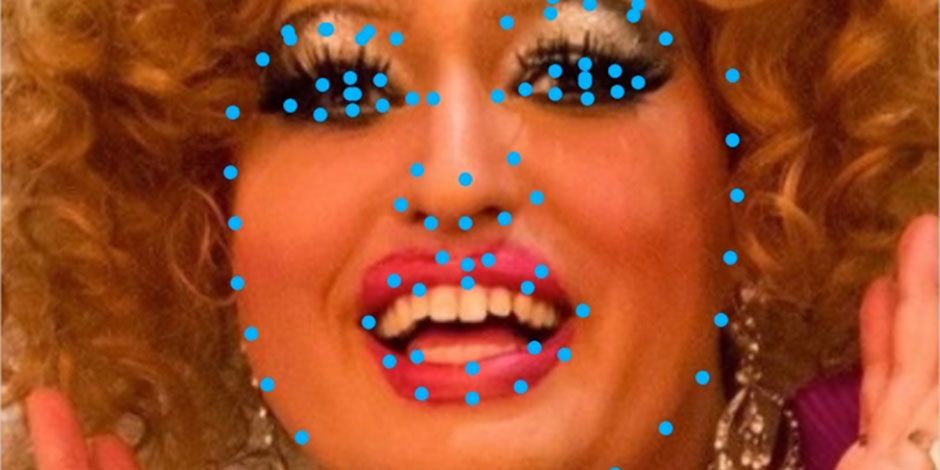Screen Queens Face Fail

We live in a society of increasing datafication and surveillance, but haven't agreed on technologies' limits; facial recognition is ever-present in our daily lives, from social media software that recognize friends to police cameras that can ID individuals in crowds. Unfortunately, being recognized can have harmful impacts on marginalized communities, including LGBTQ people, people of color, and violence survivors. Many ask how to mitigate these effects when tech is too ubiquitous to truly opt out.
This project looks at how drag makeup and performance can serve as both a metaphor and practical approach for resisting visual surveillance—and a fun one at that! While similar projects create masks to avoid facial recognition altogether, drag allows users to “hide in plain sight.” As a drag queen myself, I am particularly interested in its history not only of gender-bending, but of playing with all types of transformation and artifice that question what “realness” truly means and create new ideas of beauty.
I envision this as a hybrid of art, research, and activism beginning with a series of portraits of drag queens made up in distinct looks: the first phase will result in photos for gallery exhibition, which will also be uploaded to social media sites to test how specific techniques affect software. A second phase will contribute to academic writing on facial recognition, and I plan to produce an educational toolkit (including how-to videos) highlighting methods that anyone can use, whether a drag queen or not, to create a more rebellious and fabulous appearance online and URL.